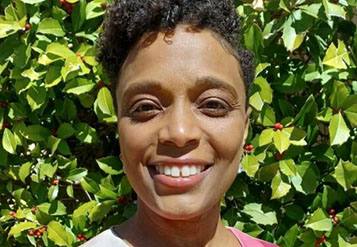My EA Journey
The Will to Succeed
 As a child, I was a refugee, a destitute immigrant, and a member of a family of Holocaust survivors.
As a child, I was a refugee, a destitute immigrant, and a member of a family of Holocaust survivors.
English was not my first language; perhaps my third, by the time I was 5 years old.
I also had a speech impediment and spent years in speech therapy.
[With all the strikes against me, starting out, if I could succeed – anyone can!]
By age 10, I knew I wanted to write. I wanted to do things to improve the world and to help people understand each other better. There is no better example of how corrosive hatred is than the Holocaust. There is never an excuse for prejudice.
When starting at UCLA, my goal was to learn the languages that would be most important in the coming decades: Russian, Arabic, and Japanese. My path would be to travel, listen to the cultures’ older generation, and to preserve the communities’ folk tales and legends before that generation died. After all, this generation was too modern to listen. Alas.
But I married a man who might become permanently paralyzed. I needed to find a way to make a living working from home. So began my journey into accounting.
Going to college at night and working full time, it took 10 years (and a divorce) to complete my Bachelor of Art degree in Accounting and Master of Business
Administration degree in International Business.
Working for small and large corporations, and other enterprises through AccounTemps, Accountants Overload, and on my own, I became quite the expert troubleshooter. Apparently, I was on my way to becoming a respected business consultant. But I did not know anything about taxes, at all. And there is no way you can be a useful business consultant if you cannot take into account the tax considerations related to that business.
I was fortunate to get some excellent training at national certified public accountant (CPA) firms, learning the skills to keep accurate documentation that would stand up to scrutiny. I also ended up handling the accounting and taxes for residential and commercial real estate partnerships all over the United States (and some in Canada).
With all my time in college and CPA firms, and in the working world, it appeared that the only thing you could do with a degree in accounting is to become a CPA. I had no intention of making a living doing certified audits.
Not a single teacher, mentor, or employer ever mentioned the concept of the enrolled agent (EA).
If you do not know to look for something, you do not look for it, do you?
One day, in the mail, I received an invitation from the California Society of Enrolled Agents (CSEA). It was all about a profession in taxation. You had to take a set of FOUR (yes, not three) specialized examinations in income tax law. They were offered once a year for two days in September or October. If you did not pass all three, you would not know until about March – and then had only one more shot to finish the following fall. Otherwise, you had to start all over.
Sigh…I sent the Internal Revenue Service (IRS) my application and requested the box of forms and publications. (Yes, they sent out an entire box of publications –
for free.) It was incredibly hard to study on my own – and I passed everything except partnerships (the one area I knew intimately). So, I had to wait another year to get my EA license. But I passed.
I became involved on the CSEA board of directors at the chapter and state levels and helped publicize enrolled agents locally, statewide, and nationally via my Dow Jones platform at www.marketwatch.com and via radio interviews across the country. I even did a monthly four-hour call-in tax show on KFWB as the guest of Bob McCormick for several years.
That was not enough. Too few tax professionals knew about the option to become enrolled agents. There were so many bright people, or single moms, who could not afford to go to a traditional college and learn the skills to make a good living.
So I convinced the UCLA Extension to let me teach an EA review course one summer. Over the years I built and refined the online course that I teach now. We have been training smart, skilled, ethical enrolled agents for over 15 years from the comfort of their homes.
Back to my original dream? I have the privilege of working with people from all over the world – melding their various languages, cultures, and even recipes — as these EA candidates team up to study together. They do not only receive their EA cards — they also build lifelong friendships with people they might never have thought to get to know.
My mission now? To turn every one of the more than 400,000 unlicensed Preparer Tax Identification Number (PTIN) holders into proud, skilled enrolled agents.



